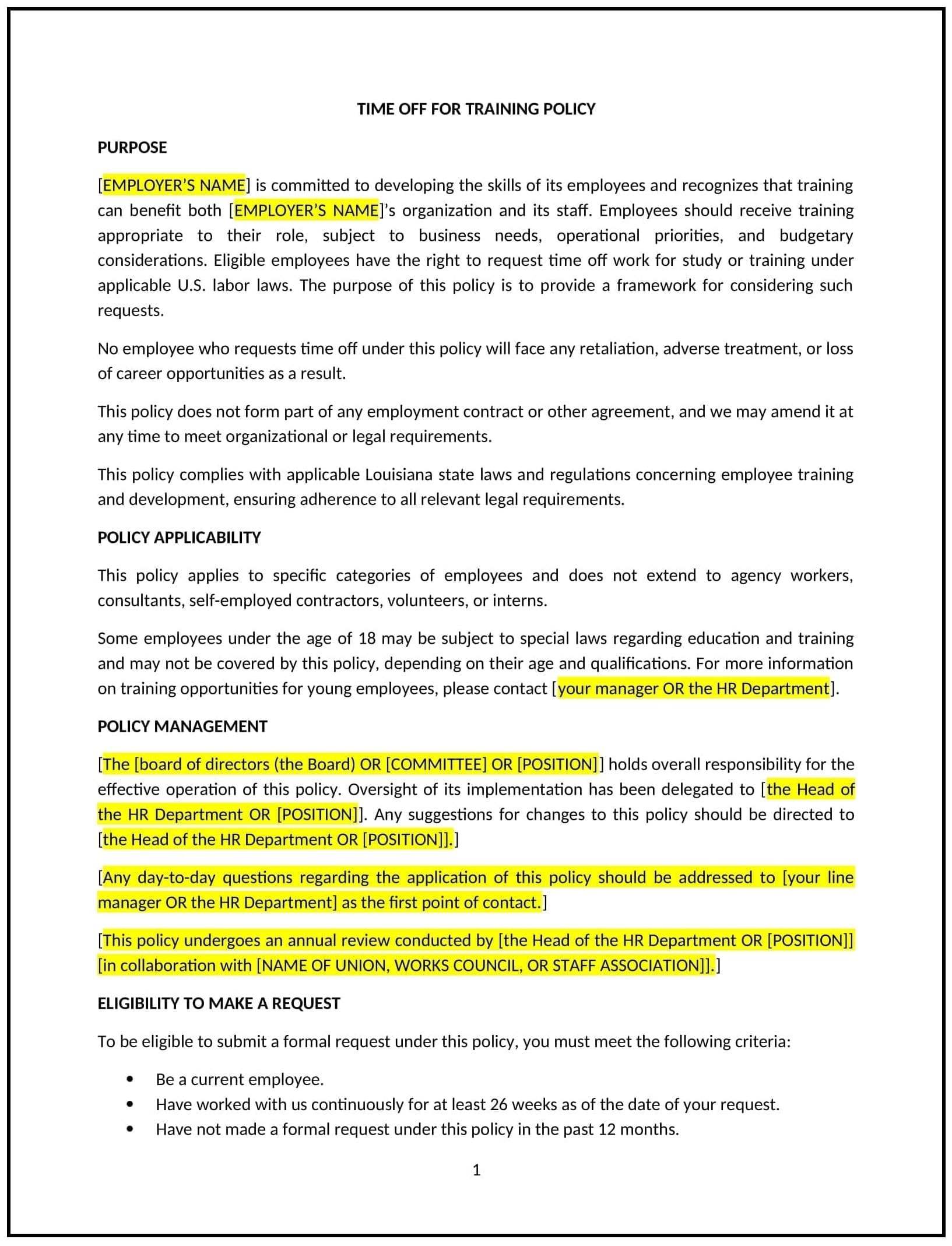Time off for training policy (Louisiana): Free template
Got contracts to review? While you're here for policies, let Cobrief make contract review effortless—start your free review now.

Customize this template for free
Time off for training policy (Louisiana)
This time off for training policy is designed to help Louisiana businesses establish clear guidelines for granting employees time off to participate in professional development or mandatory training. It outlines eligibility, procedures, and expectations to support skill enhancement while minimizing workplace disruptions.
By implementing this policy, businesses can promote growth, improve performance, and encourage lifelong learning.
How to use this time off for training policy (Louisiana)
- Define training types: Specify the types of training covered, such as job-related courses, certification programs, or mandatory compliance training.
- Outline eligibility: Clarify which employees qualify for time off for training, such as full-time, part-time, or temporary workers.
- Provide request procedures: Detail how employees should apply for training leave, including required advance notice and any documentation, such as course enrollment confirmation.
- Address pay and benefits: Specify whether training time is paid or unpaid and how benefits will be managed during the leave period.
- Communicate expectations: Emphasize employee responsibilities, such as providing proof of attendance and sharing knowledge gained with the team.
- Include review processes: Establish a method for approving or declining training leave requests based on business needs and relevance.
Benefits of using a time off for training policy (Louisiana)
Implementing this policy provides several advantages for Louisiana businesses:
- Enhances skills: Supports employees in gaining knowledge and competencies relevant to their roles.
- Improves performance: Encourages professional growth that benefits both the employee and the business.
- Promotes fairness: Provides consistent guidelines for granting training leave across the organization.
- Encourages development: Demonstrates a commitment to investing in employees’ career advancement.
- Reflects Louisiana-specific considerations: Adapts to local business needs and workforce practices.
Tips for using this time off for training policy (Louisiana)
- Communicate clearly: Ensure employees understand the policy and their responsibilities for requesting training leave.
- Monitor outcomes: Encourage employees to share insights or apply new skills gained from training.
- Maintain records: Keep documentation of training requests, approvals, and completed programs for reference.
- Align with goals: Prioritize training opportunities that align with business objectives and individual career development plans.
- Update regularly: Revise the policy to reflect changes in workplace practices or Louisiana-specific training needs.